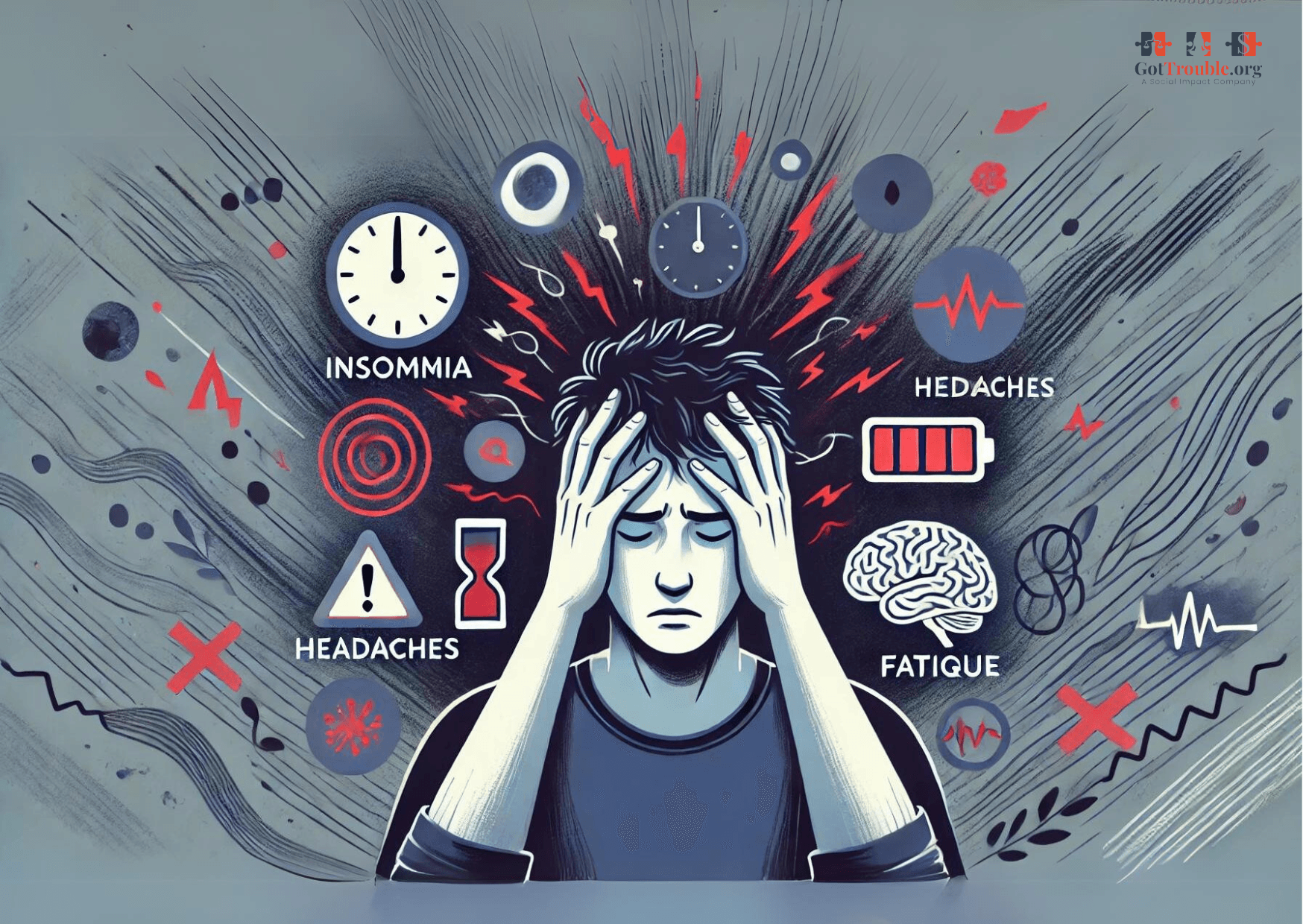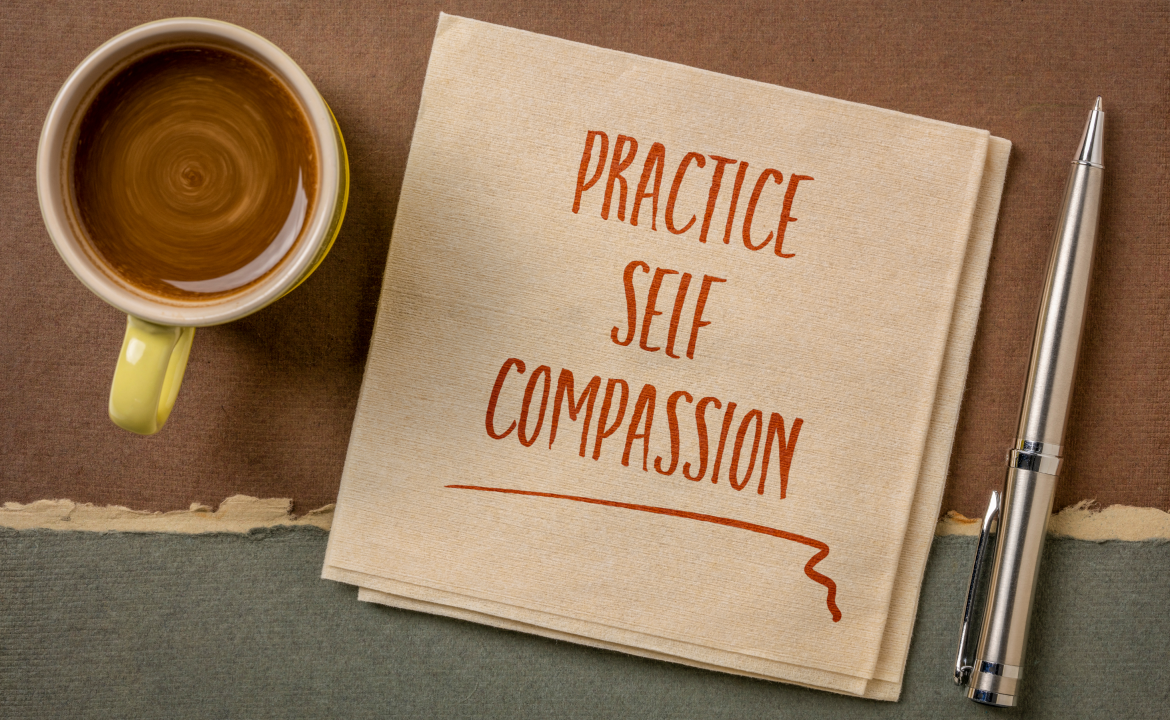Stress is part of life, but too much stress can overwhelm us both mentally and physically. Whether you’re feeling burnt out at work, having family problems, or facing personal challenges, managing stress is necessary if you want to feel calm and live well.
There are many ways to reduce stress. For most of us, this means getting to know ourselves on a deeper emotional level. Since we are both the recipients and processors of our emotions, we need to start by identifying what triggers stress and what triggers wellness and joy.
The good news is that you can use many practical stress management techniques, including complementary and integrative health approaches, to reduce stress and improve your overall health.
This article offers practical tips and timeless wisdom to help you reduce stress and cultivate calm.
Stress Responses
Stress affects us all differently. When you feel stressed, a part of your brain that prepares you to handle a stressful situation triggers a physical response. Major stressors might include marital trouble that might lead to divorce or losing your job and worried it might lead to home foreclosure.
These responses are normal, but chronic and escalating stress and worry can lead to mental health issues, muscle tension, and even physical health problems like heart disease and stomach ulcers.
You need to know how stress affects your body and find healthy coping methods.
What Are the Mental and Physical Effects of Stress?
The link between mental and physical health is strong, and stress can disrupt both. Mentally, it can cause feeling overwhelmed, irritability, and loss of focus.
Physically, stress may manifest as headaches, insomnia, digestive problems, or weakened immunity. Managing stress effectively requires maintaining a healthy balance between mind and body.
Is All Stress Bad?
No. Short-term stress can help you perform better in certain situations, like meeting a deadline or avoiding danger. However, chronic stress can weaken your immune system, raise your blood pressure, and cause a serious illness such as a stroke.
To manage stress effectively, you must regulate and balance your body’s response and not let stress overwhelm you.
Statistic: Seventy-five to 90% of all doctor’s office visits are for stress-related ailments and complaints.
Cultivating Calmness
Cultivating a sense of peace and calmness in your life is necessary to counterbalance the effects of stress. Practicing mindfulness through meditation can help you focus on the present moment, calm your mind, and reduce worry and anxiety.
Regular exercise or being in a Yoga class can play a significant role in maintaining calmness. It is well established that physical activity releases endorphins, which are natural mood enhancers.
Additionally, establishing consistent routines that include enjoyable physical activities can help create a stable environment, aiding you in remaining tranquil even when faced with challenging and stressful situations.
Prioritizing sleep, reducing texting and screen time, and spending more time in nature are all effective strategies for reducing stressful events and nurturing a more peaceful mindset.
Getting emotionally and physically healthy is more about managing stress rather than trying to eliminate stress completely. By building strong coping skills and finding healthy ways to relax and spend quality time alone, you can reduce the adverse effects of stress, which will ease your mind and body.
It may also be beneficial to seek support from friends, family, or a therapist when needed. Remember that self-care, including self-compassion, is crucial for maintaining balance and effectively managing stress.
The Mind-Body Connection
The relationship between our minds and bodies is interconnected – one cannot function without the other. When we experience chronic stress, it can manifest physically in the form of tension headaches, muscle pain, digestive issues, and more.
Similarly, physical ailments like chronic pain or illness can cause mental distress and impact our emotional well-being. Stress can and often does turn into a vicious cycle. When this happens, stress and anxiety can lead to depression.
Let’s explore some practical and effective strategies for managing stress.
Practical Tips for Stress Management
Mindful Breathing Techniques
Deep breathing is one of the simplest and most effective relaxation techniques. When you take a deep breath, you send a message to your brain to relax, and you will discover that you can stay calm in stressful situations.
Get Enough Sleep
Getting enough sleep is critically important to managing stress. When you’re sleep-deprived, your stress levels increase, and it’s harder to stay calm.
Lack of sleep also weakens your immune system and makes you more prone to illness. Aim for 7-9 hours of sleep each night and practice good sleep hygiene by avoiding caffeine, creating a bedtime routine, and having a consistent sleep schedule.
Eat a Healthy Diet
Your diet plays a big part in how well you cope with stress. Foods rich in vitamins and minerals, like leafy greens, nuts, and fruits, can help reduce stress.
Sugary snacks and caffeine can increase stress levels and make you anxious and jittery. Try to include more nutrient-dense foods in your daily meals and avoid unhealthy habits like eating too much sugar or caffeine. Food addictions, like compulsive eating, also increase stress and anxiety.
- Reduce Sugar: High sugar intake can increase anxiety and stress. Focus on balanced snacks that include protein and vegetables.
- Reduce Caffeine: Caffeine is a stimulant that can worsen stress. If you’re feeling overwhelmed, try cutting back on coffee and replacing it with herbal tea or water.

Physical Activity and Exercise
Exercise is a natural stress reliever that can reduce stress and improve mood. Physical activity releases endorphins, hormones in the brain that promote a positive attitude and reduce anxiety. You don’t need strenuous exercise to benefit; even a 15-minute walk can reduce stress.
- Take a Walk: Walking in a natural setting like a park or near water can be the most beneficial way to reduce stress. The National Institute of Mental Health suggests that outdoor time can lower stress and boost mental and physical well-being.
- Engage in Other Forms of Movement: Yoga, stretching, and gardening are great ways to incorporate movement into your daily routine. Consider joining a dance and movement therapy class, which has been shown to improve flexibility, focus, and your mind-body connection.
Take a Break
When life feels overwhelming, it’s important to take a break. Spend time giving your mind a chance to reset. Whether it’s a 10-minute power nap, spending time with your favorite friend, or just stepping away from a stressful situation, taking a break can help you feel refreshed and inspired to take on new challenges.
- Nap to Recharge: Short naps between 10-20 minutes can refresh your mind and body and help you stay calm.
- Practice Self-Care: Practice self-compassion. Doing something nice for yourself, like taking a bath, reading a book, or listening to music, can be a simple but effective way to relax.
Try a New Hobby
Doing something different can distract you from stress. Try new activities like journaling, puzzling, blogging, or learning a new language, which can stimulate your brain and provide a healthy way to cope with stress.
- Journaling: Keeping a stress journal can help you track what triggers your stress and how you respond to it. Over time, you’ll see patterns and can work on strategies to reduce stress. Create a to-do list to remind you to take breaks and engage in enjoyable activities.
- Creative Activities: Consider hobbies like painting, knitting, or photography. Creative outlets allow you to focus on the present moment and release negative thoughts.
- Increase Pet Time: Spending more time with your pet has been shown to reduce stress and increase emotional wellness. Learn about pet therapy.
Statistic: Chronic stress increases the risk of developing heart disease by 40% and stroke by 50% (American Psychological Association).
Wisdom and Wellbeing
The Emotional Power of Timeless Wisdom
Managing stress is not just about taking action. It’s also about developing a mindset to stay calm amid life’s challenges. One way of harnessing wisdom is to start a practice of contemplative mediation. Here’s some timeless wisdom for managing stress and living joyfully.
Wisdom to Reduce Stress
The list of wisdom came from a teacher who wanted his students to learn how to avoid stress and cultivate joy in their lives:
- Take Each Day at a Time
Life can feel stressful when we try to think too far ahead. Focus on today’s tasks and challenges rather than worrying about tomorrow. Practice being in the present moment. One step at a time.
- Smile at a Stranger
A simple smile can lift your spirits and brighten someone else’s day. Smiling sends a message to your brain to relax, helping you manage stress in the moment.
- Practice Moderation
Whether it’s food, work, or entertainment, balance is key. Overindulging can lead to dangerous addictions and add to your stress, but practicing Moderation can keep you feeling in control.
- Don’t Overeat
When stressed, it’s tempting to turn to food for comfort. This can lead to unhealthy eating disorders. Instead, try to eat mindfully. Eating balanced meals helps maintain your energy and mood throughout the day.
- Be Truthful
Stress can come from holding things in or pretending to be someone we’re not. Being honest with yourself and others can release that pressure, leading to a more peaceful mind.
- Take a Long Walk
Walking is a simple way to clear your mind and reduce stress. If possible, take a walk in nature—whether it’s at a park or just down a quiet street. The fresh air will help you relax.
- See Your Work as an Art Form
No matter what your job is, try to see it as something meaningful. Finding purpose in what you do each day can make even the most stressful tasks feel a little lighter.
- Plant a Tree
There’s something deeply calming about connecting with nature. Planting a tree is not only good for the environment, but it also gives you a sense of accomplishment and peace.
- Be More Accepting of People
When we accept others as they are, we relieve ourselves of the stress that comes from judgment or comparison. Let people be who they are, and you’ll find more calm in your relationships.
- Feed the Birds
Feeding birds or other animals is a simple act of kindness. Watching them brings a sense of calm and reminds you to slow down and enjoy the small things in life.
- Be Generous
Giving to others, whether it’s your time, a kind word, or a helping hand, can reduce stress. It shifts your focus away from your own worries and brings a sense of connection and purpose.
- Stand Up and Stretch
When you’re stressed, your body gets tense. Standing up and stretching for a minute can release that tension and help you feel more relaxed.
- Listen to the Rustle of a Tree
Next time you’re outside, pause to listen to the rustle of leaves in the wind. Nature has a calming effect that helps ease stress and bring you back to the present.
- Always Have a Plan B
Things don’t always go the way we want, and that’s okay. Having a backup plan reduces the stress of worrying about the unknown, giving you a sense of security and control.
- Learn a New Joke
Laughter is a great stress reliever. Take a few minutes to learn a new joke and share it with someone. You’ll lighten the mood and forget about your stress for a moment.
- Be More Flexible
Life rarely goes as planned, but flexibility helps us easily handle those surprises. When you’re open to change, stress doesn’t seem as overwhelming.
- Practice Being a Better Listener
Sometimes, we’re so focused on our own stress that we forget to listen to others. Hearing someone out builds stronger connections and can make you feel more at peace.
- Learn the Words to a New Song
Music has the power to soothe stress. Learning the words to a new song engages your brain and gives you something fun to focus on, leaving less room for worry.
- Go on a Picnic
A picnic is a simple way to take a break and enjoy life. Whether you go alone or with loved ones, eating outside helps you slow down and appreciate the moment.
- Take a Different Route to Work
Doing something different, like taking a new route to work, breaks up the monotony of everyday life. These small changes can bring a sense of freshness and calm.
- Watch a Movie
Sometimes you just need to escape. Watching a movie is an easy way to forget your stress for a few hours and relax.
- Eat by Candlelight
Turning off bright lights and eating by candlelight can create a peaceful atmosphere. It’s a small change that can make mealtime more relaxing.
- Keep a Journal
Writing down your thoughts can help you make sense of your stress. It’s a way to release your worries and reflect on what’s truly important.
- Think Sweet Thoughts Before Sleep
Before you go to bed, think about something positive. This helps your mind wind down and prepares you for a good night’s sleep, reducing the stress you carry into the next day.
- Practice Smiling Every Day
Even when you don’t feel like it, try smiling. It can trick your brain into feeling happier and calmer, making stressful moments more bearable.
- Say Hello to a Stranger
Simple human connections, like saying hello to a stranger, remind you that we’re all in this together. These small acts of kindness can reduce feelings of isolation and stress.
- Praise Another Person
Take a moment to praise someone for a job well done. Positive interactions like this lift your mood and reduce stress, reminding you of the good around you.
- Remember, You Always Have Options
Feeling trapped can make stress worse. Especially if you’re having a really bad day, remember there are always options—whether it’s changing your approach or asking for help. Knowing this can make tough situations feel less daunting.
- Quit Trying to Fix People
It’s not your job to fix others. Accepting people as they are can bring a sense of peace and free you from the stress of trying to change things beyond your control.
- Get Enough Sleep
When you don’t get enough sleep, stress feels worse. Prioritize rest by going to bed at a reasonable time and creating a calming nighttime routine
This wisdom promotes mindfulness, simplicity, and compassion. By incorporating these small actions into your daily life, you can change how you deal with stress and find peace in the chaos.
Instant Stress Relief Techniques
When overwhelmed, quick and effective stress relief techniques can make all the difference. Here are a few to try:
- Grounding Techniques: Focus on your surroundings using your five senses to calm your mind. For example, notice five things you can see, four things you can touch, three things you can hear, two things you can smell, and one thing you can taste. This is a great way to bring you into the present moment, a key to mindfulness.
- Quick Distractions: When stress hits, take a few moments to watch a funny video, read a poem, or listen to a calming song. These small breaks can help you regain control and reduce stress.
- Settle Yourself With Alone Time: Alone time does not have to mean loneliness. The recent pandemic proves there is a real upset with spending quality time with yourself. Learn the secrets of being happy alone.
Things You Should Not Do
- Don’t rely on unhealthy coping mechanisms: Avoid using alcohol, junk food, or excessive screen time to manage stress.
- Don’t ignore your feelings: Bottling up emotions can increase stress and anxiety over time.

Three Myths About Stress
Myth #1: Stress is a sign of weakness.
Reality: Stress is a normal biological response to challenges. Experiencing stress does not mean you are weak—it’s a natural part of life that everyone faces.
Myth #2: Reducing stress requires major life changes.
Reality: Sometimes, this might be necessary. Most of the time, small, simple practices like deep breathing, taking breaks, or getting enough sleep can significantly reduce stress without drastic life changes.
Myth #3: Stress is just a temporary phase.
Reality: Chronic stress can lead to long-term health issues if not addressed properly, making it essential to develop effective coping strategies. If practical coping strategies are not working for you, and you sense your thoughts are spinning out of control, don’t hesitate to seek the services of a professional such as a psychologist or psychiatrist. You may also wish to consider learning about cognitive behavioral therapy.
Final Thoughts
Stress is inevitable, but it doesn’t have to run your life. You can reduce stress and improve your mental health by understanding how stress affects your body and mind and using practical techniques like deep breathing, healthy eating, and physical activity.
When we consider the power of our own perspective and the wisdom teachings passed down to us through generations, we can learn how to be joyful, thankful, and less stressed.
These teachings remind us that being calm and responsible for our emotional and physical well-being can lead us to a happier and more fulfilling life.
If your stress and anxiety are substantially interfering with your life, do not hesitate to consult with a clinical mental health professional.
A Cleveland Clinic Video on How to Reduce Stress and Create a Balance Between Work and Life:
References and Sources
“The Relaxation Response” by Herbert Benson
Workplace Stress: 8 Ways To Save Your Mental Health – Zinny Factor.
Anxiety and Depression Summary | Kim Carolan, Naturopath |
Dive Into These Hormone Balancing Tips – Dr. Erin Ellis.
25 Effective Ways to Manage Stress and Anxiety | Mavigadget.
Things You Should Do After 7PM Everyday – Positive Brains.
Real Life Psych: Licensed Therapist Alexa Assimos
The Cleveland Clinic On Stress




























